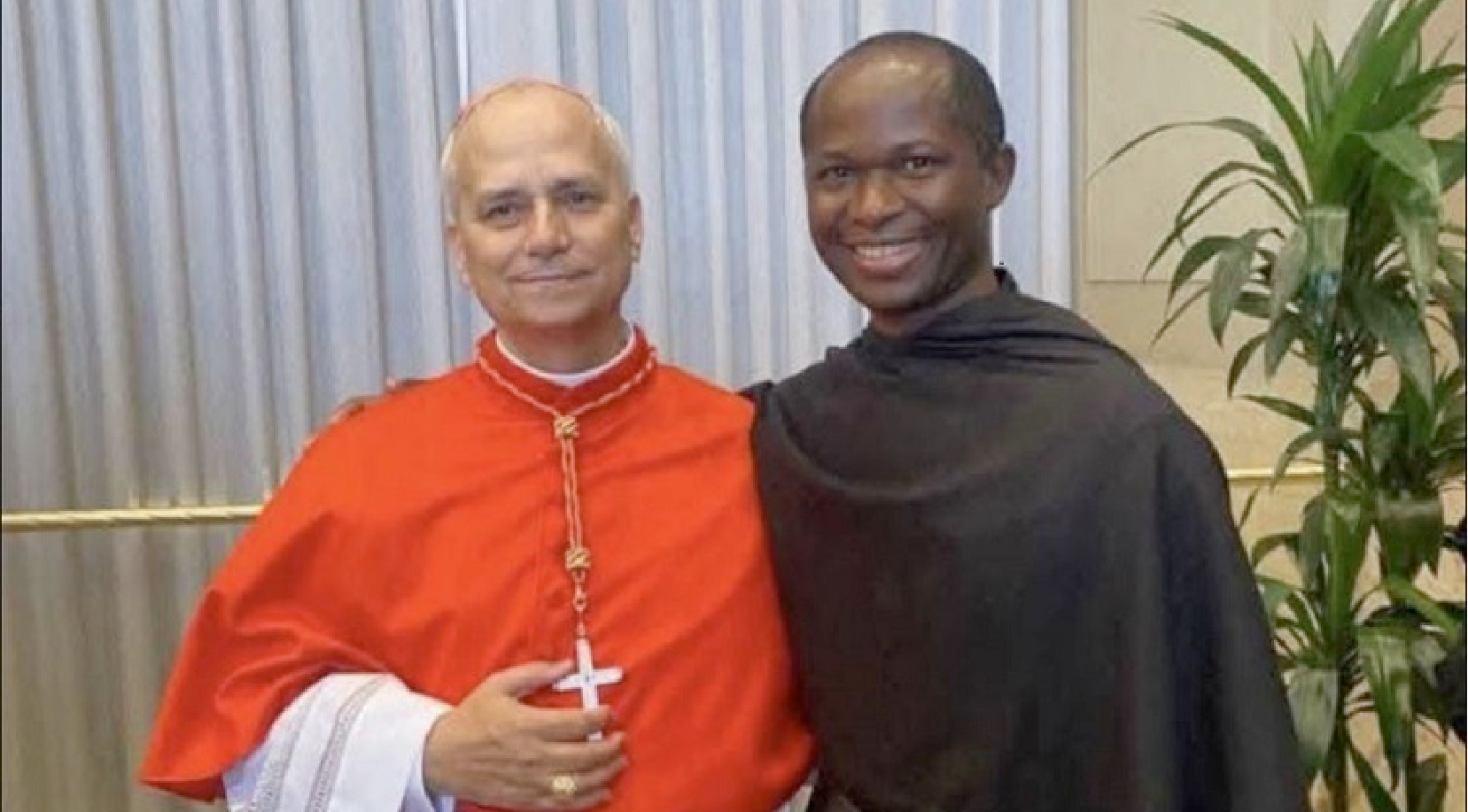(ZENIT News / Rome, 11.11.2025).- In one of his first structural innovations inside the Vatican, Pope Leo XIV has appointed Nigerian Augustinian Father Edward Daniang Daleng as Vice-Regent of the Prefecture of the Papal Household — a position newly created by the Pope himself and not foreseen in the apostolic constitution Praedicate Evangelium. The appointment, announced on November 10, 2025, by the Holy See Press Office, signals both the Pope’s trust in the Order of Saint Augustine and his intention to broaden the geographical and cultural scope of his closest collaborators.
The Prefecture of the Papal Household, a small but strategic organism within the Vatican, is responsible for coordinating the Pope’s non-liturgical activities: audiences, official visits, spiritual retreats of the Curia, and the organization of both the Papal Chapel and the Papal Family. It is, in essence, the office that ensures the daily rhythm of the Pope’s encounters with the world — a bridge between protocol and pastoral care.
For more than a decade, the Prefecture has been led by Monsignor Leonardo Sapienza, a discreet yet influential figure often seen at the Pope’s side. Father Daleng will now serve directly under him, taking up the role of Vice-Regent, a function that Pope Leo XIV is said to have introduced to strengthen coordination and continuity within this crucial office.
Born in 1977 in Yitla’ar, in Nigeria’s Plateau State, Daleng joined the Augustinians in 2001, during the leadership of then-Prior General Robert Francis Prevost — who himself would later become prefect of the Dicastery for Bishops and a cardinal. After his solemn profession in 2004 and ordination in 2005, Daleng pursued advanced studies in Rome, earning a doctorate in moral theology from the Alphonsian Academy in 2012. His career within the order has been marked by global engagement: he served as General Counselor for Africa and later as Procurator General, managing the order’s relations with the Holy See.
In a 2024 interview, Daleng spoke warmly about Pope Leo XIV’s long-standing relationship with the African Church. “He carries Africa in his heart,” he said, recalling how the future Pope had visited African Augustinian missions multiple times, including a significant visit to Nigeria in 2016 during the order’s mid-term general chapter. “He listens to Africa not as a project, but as a living part of the Church.”
That sensitivity to the global south seems to be shaping Leo XIV’s papacy. The appointment of a Nigerian theologian to a position so close to the papal person reflects a deliberate move toward integrating non-European voices into the highest levels of Vatican governance — something repeatedly requested during the synodal consultations of recent years.
The Prefecture of the Papal Household has a unique history. Traditionally headed by prelates from Italy or Central Europe, it gained public attention in the 2000s under Archbishop Georg Gänswein, who combined the role of Prefect with that of personal secretary to Benedict XVI. After tensions with Pope Francis led to Gänswein’s dismissal in 2023, Monsignor Sapienza quietly assumed leadership, keeping the Prefecture steady but lean. The new position of Vice-Regent suggests that Pope Leo XIV wants a more dynamic structure — one capable of adapting to a busier papal schedule and a renewed emphasis on personal encounter.
While the appointment of a cleric may seem administrative, within the Vatican’s complex ecosystem it carries symbolic weight. The Prefecture is the gateway to the papal presence: every ambassador, bishop, or head of state who meets the Pope passes through its careful choreography. Entrusting part of that responsibility to a Nigerian Augustinian represents not only a gesture of confidence but a redefinition of proximity — an acknowledgment that universality begins with representation.
Father Daleng’s Augustinian identity also resonates deeply with Leo XIV’s own background as a member of the same order. Both men share a spiritual lineage that prizes interiority, community, and the restless search for truth. It is perhaps no coincidence that the Pope’s first structural reform within the Apostolic Palace should involve one of his own — someone formed in the same school of thought that shaped his theological and pastoral vision.
Observers in Rome note that the appointment of Daleng also continues a pattern in Leo XIV’s early governance: combining fidelity to tradition with quiet institutional innovation. The creation of the Vice-Regent role does not disrupt the existing balance but enhances it, providing what one Vatican official described as “a rhythm of collegiality within proximity.”
At 48, Daleng belongs to a generation of African clergy whose formation has been both local and cosmopolitan — rooted in vibrant Christian communities and refined in the academies of Rome. His expertise in moral theology, coupled with administrative experience at the international level, makes him well-positioned to interpret the papal agenda in human, not bureaucratic, terms.
For many within the Curia, his arrival represents a subtle yet significant evolution: a Vatican where cultural diversity is not an accessory, but a resource; where proximity to the Pope no longer implies uniformity of origin, but unity of mission.
Thank you for reading our content. If you would like to receive ZENIT’s daily e-mail news, you can subscribe for free through this link.

